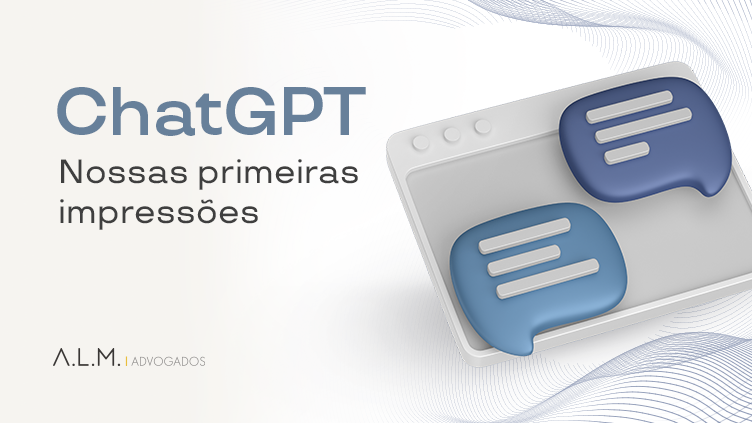At the beginning of this year, for the sake of curiosity and with the intention of getting the best out of computer science and its application in the legal field, we tested ChatGPT in a simple purchase and sale promise and requested some changes in the wording.
The result was interesting although we still have a lot to test and ChatGPT in turn evolves, as well highlighted OpenAI on his blog informing that the tool still has increasingly evident limitations, more possible and desirable uses.
What do we test? (or rather: what questions did we ask?)
I. The substitution of masculine terms for feminine ones;
II. The replacement of the term “GRANTOR” by “GRANTOR”;
III. The replacement of terms in the singular by plural.
What are our first impressions?
We didn’t come to conclusions very different from what other curious people have been presenting.
It is possible to notice that the tool cannot edit very long texts, it can make simple edits, for example when we requested to change the term “GRANTOR” to “GRANTOR”, it was a success.
We realized that just like the movie I Robot (inspired by Isaac Asimov’s literary classic of the same title), to get the answer you need, you must ask the right question. Otherwise, the solution presented by ChatGPT will not be the expected one.
For those of you who have fallen head over heels into the topic and are in doubt about what this tool is, in response given to us by ChatGPT itself:
“ChatGPT (Generative Pre-trained Transformer) is a natural language model developed by OpenAI company. It is an artificial intelligence tool capable of performing natural language processing tasks, such as answering questions, generating texts and translating languages.
ChatGPT is trained on large volumes of textual data, allowing it to generate accurate and coherent responses based on the given context. The model is fed texts from across the internet, and then it “learns” to recognize language patterns and create new texts based on those patterns.”
ChatGPT has had a huge impact in many areas, from creating chatbots for customer service to large-scale text generation. It is a powerful tool to help with data analysis and automation of natural language related tasks.
However, it is important to point out that ChatGPT is not perfect and can make mistakes or reproduce biases and stereotypes present in the training data. Therefore, it is important to use it with care and always have the supervision of a qualified professional in each area of application.
It is inevitable that the machine/human integration will get stronger, with ChatGPT and all other forms of AI being used. (artificial intelligence), an expression of this movement.
Per Rubens Leonardo Marin and Gabriel Bdine




